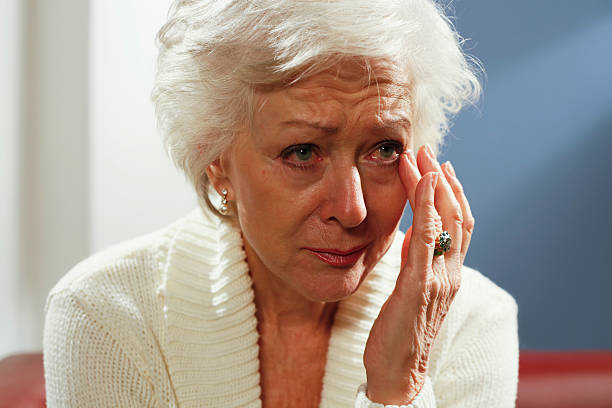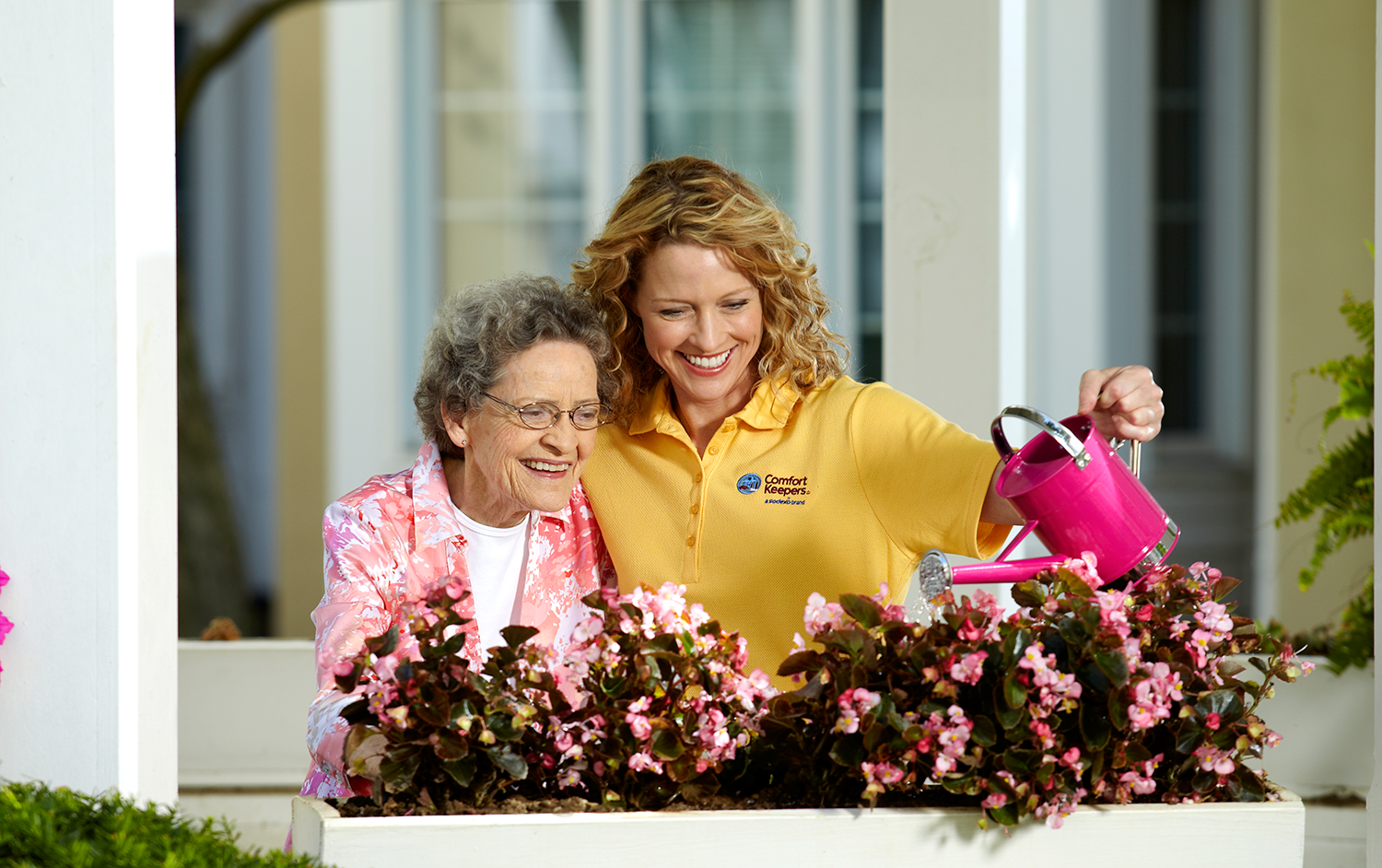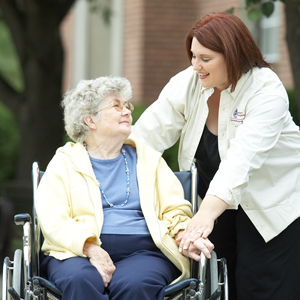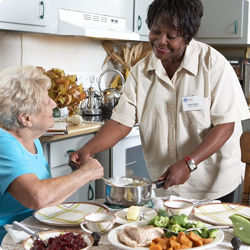Crying – Not Always Caused by Sadness, but May Be a Cause for Concern
Blog | October 18, 2018

Seniors and Crying
Have you noticed a senior in your life who has been bursting into tears, seemingly at random? Senior crying, without a notable reason, may be a cause for concern.
With older members of our communities and families, we can often recognize the signs of depression in seniors, and take action to support them if they are experiencing pain, sadness or loneliness. Instinctively, we seek to comfort people who are crying, or appear grief-stricken.
… But what about when crying isn’t truly an expression of grief?
When senior crying means something else
Uncontrollable bouts of emotion, such as crying or laughing, can be a sign of PseudoBulbar Affect (also commonly abbreviated as PBA.) PBA is a neurological disorder, caused by damage to the nervous system, and is always directly linked to or a result of another neurological condition, including:
- Traumatic Brain Injury
- Stroke
- ALS
- MS
- Parkinson’s disease
- Alzheimer’s / Dementia
PBA impacts emotional expression, causing bouts of crying or laughing at inappropriate times, lasting anywhere from minutes to only a few seconds. It can be difficult to separate these emotional outbursts from other mental conditions, like bipolar disorder, depression, anxiety or schizophrenia. While PBA can happen at the same time as a mental illness, it’s cause is not related, and it will need to be treated separately.
Of course, any sudden change in mood should be taken seriously, but because PBA occurs with other neurological disorders, it is sometimes the “canary in the coal mine” to alert to the presence of a stroke or other brain injury in the absence of a prior diagnosis. In fact, PBA outbursts are one of the most commonly reported post-stroke behaviours.
Treatment options to manage symptoms of senior crying
Many people who suffer from PBA report that their quality of life is greatly impacted by their condition – it can cause embarrassment, frustration and misunderstandings. Treatment can help alleviate symptoms and reduce their impact on a senior’s well-being.
There are no over the counter remedies for PBA, and doctors may prescribe low doses of antidepressants to help cope with symptoms. Another option, Nuedexta, is a new medication available for the treatment of PBA, but it comes with a number of side effects and drug interactions that may not always be practical for seniors with comorbid conditions.
Holistically, coping with episodes could involve deep breathing exercises, changing positions, or choosing a distraction. Having conversations about PBA and its effects can help loved ones and friends to understand the emotional outbursts are not intentional and are not controllable.
Talking to a doctor
When you discuss your concerns with a medical professional, they are going to ask questions, some like:
- When you laugh, does it often turn into crying?
- Do outbursts of tears or laughter match your emotional state?
- Do you avoid spending time with others because you cannot control your emotions?
The severity and frequency of your symptoms will help dictate treatment, so it may help to keep a journal of your symptoms. Keep notes of dates and times when outbursts occur, and some details on the conversation taking place or the setting. Before your appointment, you could also take this quiz, for yourself or for someone in your care to screen symptoms. A doctor will be able to use that information to determine next steps.
There is no cure for PBA, but anyone suffering from this condition can work with their health practitioner to help manage, monitor and reduce symptoms. Open and honest conversations with family and friends can help take the mystery out of PBA-related outbursts and improve quality of life for the senior experiencing this neurological condition.
Comfort Keepers® Georgian Triangle Can Help
If you are concerned about the health and wellbeing of your aging loved ones we can help. Comfort Keepers®’s trained caregivers help provide senior clients with the highest quality of life possible to keep them happy and healthy at home. Our Interactive Caregiving™ provides a system of care that addresses safety, nutrition, mind, body, and activities of daily living (ADLs).
What’s more, our trained caregivers are selected with one specific quality in mind: empathy. Care that is empathetic is care that starts in the heart, and it allows us to meet our clients’ exact needs. Learn more about our unique service offering by contacting the Comfort Keepers Georgian Triangle office.
If you live in the Collingwood, Midland, Owen Sound area, contact Comfort Keepers at (705) 293-5553, or email us at georgiantriangle@comfortkeepers.ca
Comfort Keepers Georgian Triangle is here to help you and your loved ones get the best care possible.
Comfort Keepers Georgian Triangle has received the Primer Award with Accreditation Canada; Working with health, social and community service organizations to advance quality and safety.
Individualized Home Care Options
Long-Term Home Care, 24 Hour Home Care & Short Term Care Options Customized for You







